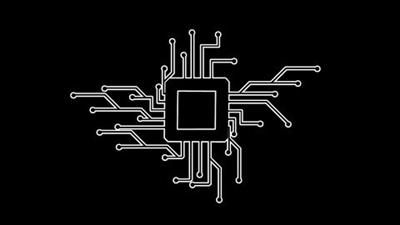
Genre: eLearning | MP4 | Video: h264, 1280x720 | Audio: AAC, 44.1 KHz
Language: English | Size: 3.76 GB | Duration: 9h 30m
Learn the roles of Embedded Engineer (Hardware, Software, Firmware, Systems). Build a top career in Embedded Engineering
What you'll learn
How to become Embedded Firmware Engineer
How to become Embedded Firmware Developer
How to become Embedded Firmware Test Engineer
How to become Embedded Software Engineer
How to become Embedded Software Developer
How to become Embedded Software Test Engineer
How to become Embedded Systems Engineer
How to become Embedded Hardware Engineer
Embedded Hardware Development
How to become Embedded Hardware Test Engineer
How to become Embedded Hardware Design Engineer
Description
An Embedded System is a combination of computer hardware and software designed for a specific function. Embedded systems may also function within a larger system. The systems can be programmable or have a fixed functionality. Industrial machines, consumer electronics, agricultural and processing industry devices, automobiles, medical equipment, cameras, digital watches, household appliances, airplanes, vending machines and toys, as well as mobile devices, are possible locations for an embedded system.
An embedded system is a small or large non-computer device with integrated software based on microcontrollers and microprocessors for performing a dedicated function or a limited set of functions. Any embedded system, large or small, primitive or complicated, is always the integration of a hardware layer and a software layer. The scheme of an embedded system depicts common hardware and software elements. The software layer may contain various components depending on the device's complexity and purpose. A complete embedded software package includes four constituents Firmware, An operating system, Middleware, Application software.
With Embedded Engineering you can decrease the time used in to market and speed up regulatory compliance. It enables manufacturers to gain the first-mover advantages of premium pricing and increased market share. By using Embedded Engineering you can also increase profitability by reducing the cost of developing and testing software. It reduces support costs by increasing the quality of the embedded software. Embedded engineering includes the expansion and testing of software. Embedded engineering requires expertise in a different set of operating systems, programming models, communication protocols and regulatory requirements than for standalone computers.
The embedded system engineer / embedded systems engineer, expert in the constraints of the embedded world, develops optimized programs. The job of embedded system engineer is to know exactly what the applicant wants. To achieve this, a great technical and relational ease is necessary. From this phase, there will be a strong interaction with the other concerned technical specialties such as hardware, mechanics or application software.
Uplatz offers this comprehensive course on How to become an Embedded Engineer. Whether you want to become an Embedded Software Engineer, Systems Engineer, Hardware Engineer, Firmware Engineer, or Embedded Test Engineer, this course provides you detailed information on the roles & responsibilities of an embedded engineer, the key skills required, how to prepare for embedded engineering/systems job interviews, and more.
If you are an embedded engineering aspirant, and aspire to work work as an embedded systems/software/hardware/firmware/test engineer, then this is the right course to get started.
Job Prospects of an Embedded Engineer
As per Glassdoor, a leading job portal, the average salary for the role of Embedded Software Engineer in United States is $92,672 per year. Similarly, the national average salary for a Embedded Hardware Engineer is $1,10,496 per year in United States. The engineer must succeed in setting up a software architecture and planning taking into account the constraints expressed, for example those related to security, cost, autonomy or development time. The entire technical environment will then be set up, with its choice of technology, programming language and platform, each with its advantages and disadvantages. There are abundant jobs available for the skilled professionals in embedded systems, engineering, testing areas and with digitalization & advanced data/analytics as well as the businesses using machine learning and data science more than ever, the demand for embedded engineers is surely bound to go further up over the next few years.
Who this course is for:
Individuals aspiring for a career in Embedded systems/engineering
Aspirants for a career in Embedded systems/hardware/software/firmware/testing
Embedded Software Engineers
Embedded Hardware Engineers
Embedded Firmware Engineers
Embedded Engineers
Design Engineers Embedded Systems
Software Quality Assurance Engineers For Embedded Systems
Firmware Test Engineers
Hardware Engineers & Hardware Test Engineers
Embedded Software Developers & Testing Specialists
Embedded Systems Engineers
Embedded Firmware Developers
Beginners & Newbies in Embedded systems & engineering
Screenshots
Download link:
Só visivel para registados e com resposta ao tópico.Only visible to registered and with a reply to the topic.Links are Interchangeable - No Password - Single Extraction

